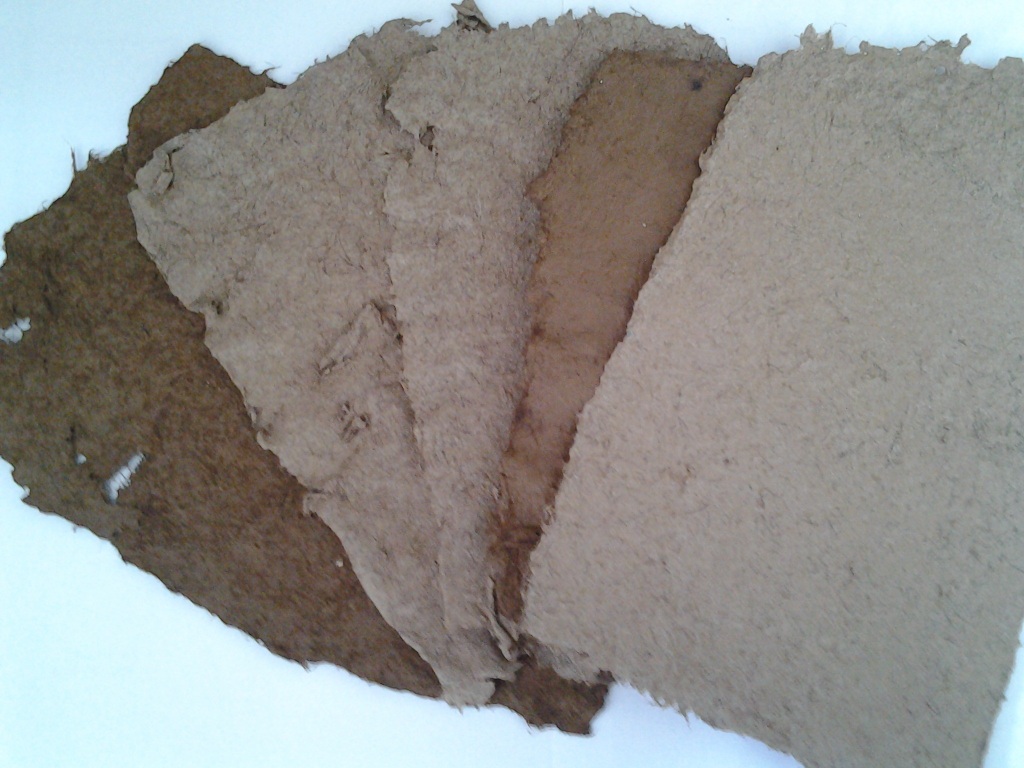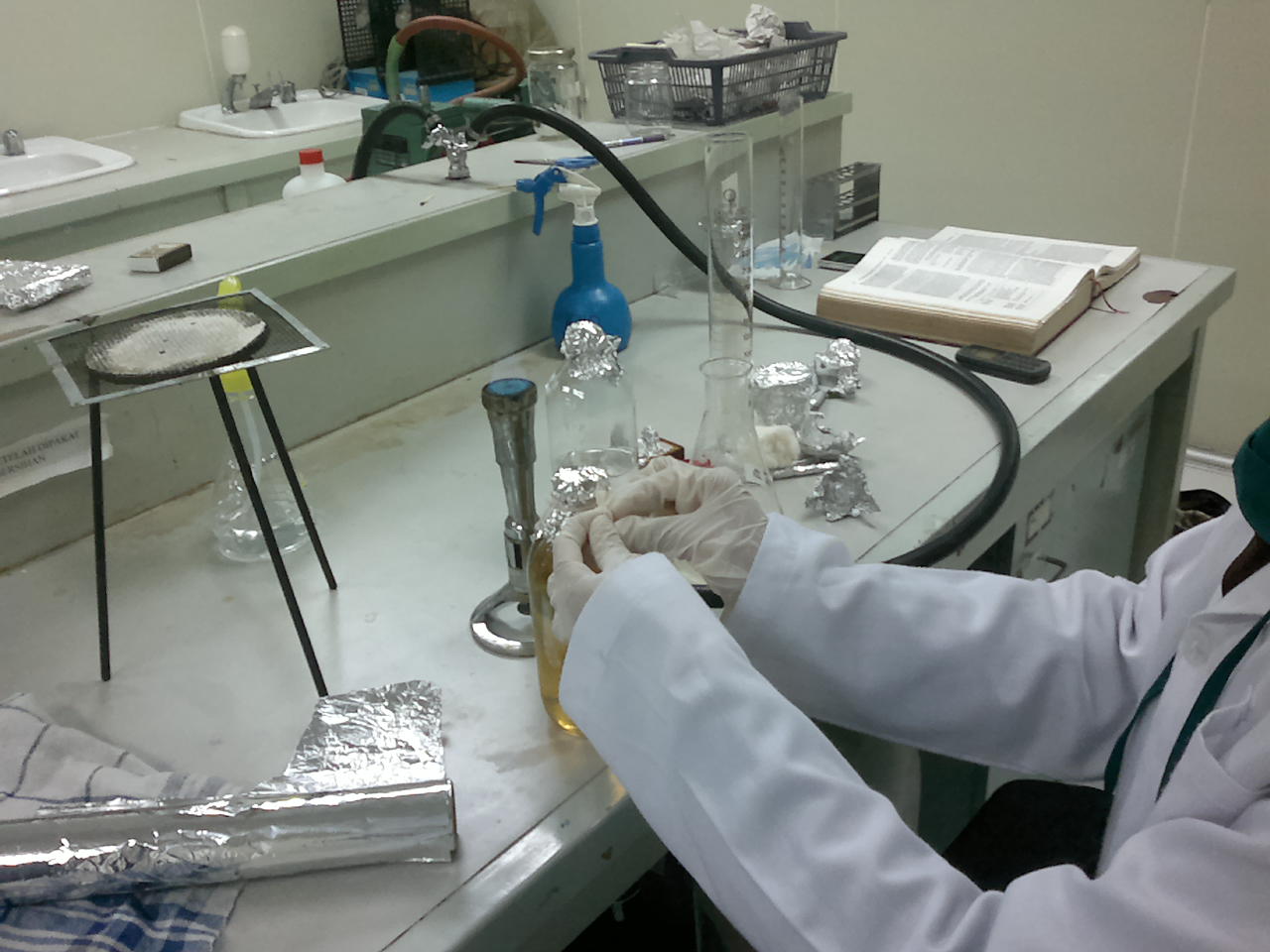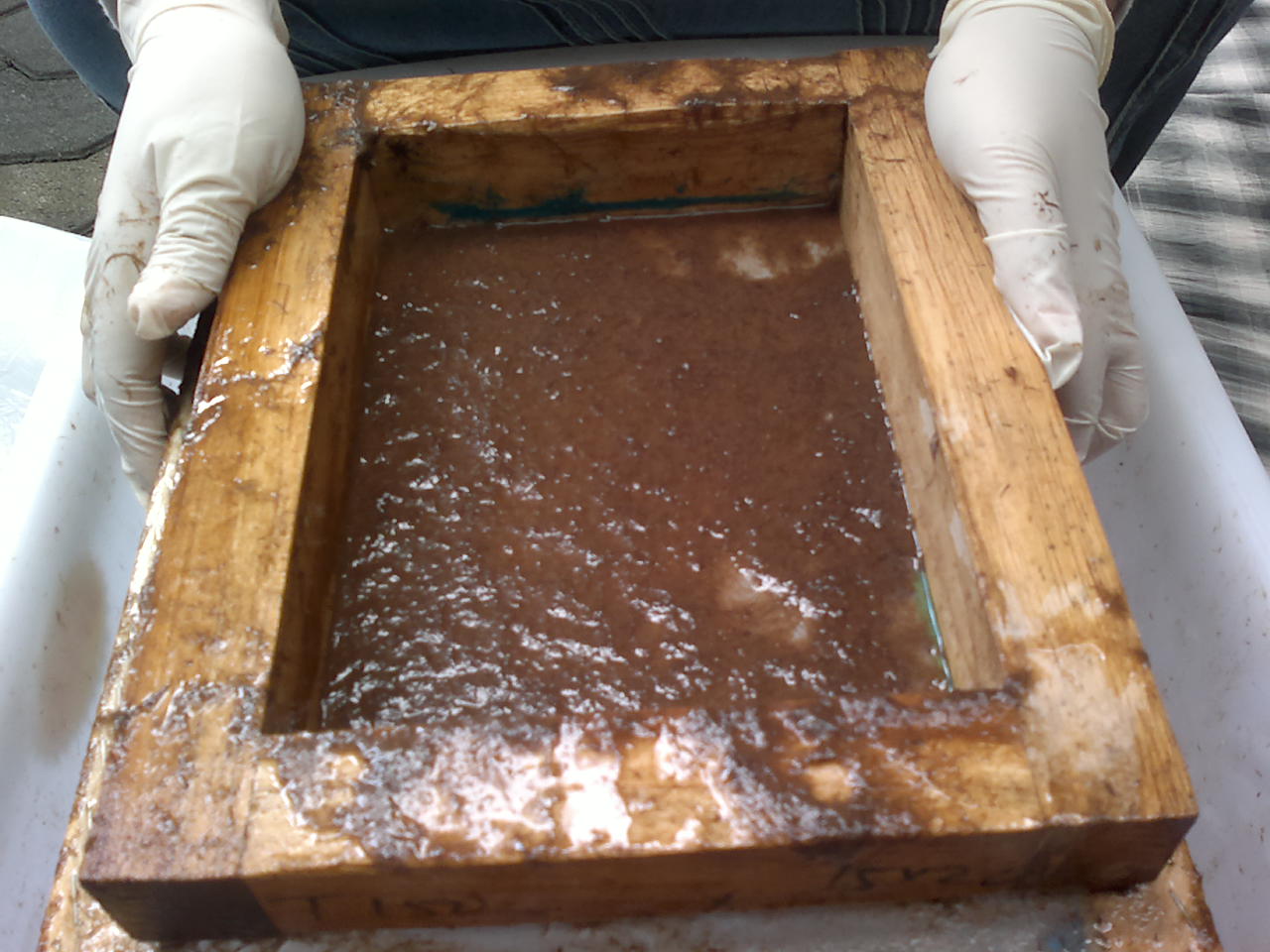Anti-Microbial Wrapping Paper from Akar Wangi Waste

 BANDUNG, itb.ac.id-Some parts of Java Island, Indonesia, are granted with amazing geographical condition so that they become producers of essential oils such as akar wangi. In akar wangi's oil refining process, waste in the form of plants' debris is also produced. Some of essential oil producers burn the waste instead of giving added value to it. Due to the abundant amount of unitilized akar wangi waste, five ITB students made an anti-microbial wrapping paper from the akar wangi waste. They are Lili Meilani (Biological Engineering 2010), Rahmah Putri (Pharmaceutical Science and Technology 2010), Nida Anbar (Industrial Engineering 2011), Rizkia Lazuardina (Pharmaceutical Science and Technology 2010), and Affina Musliha (Pharmaceutical Science and Technology 2010).
BANDUNG, itb.ac.id-Some parts of Java Island, Indonesia, are granted with amazing geographical condition so that they become producers of essential oils such as akar wangi. In akar wangi's oil refining process, waste in the form of plants' debris is also produced. Some of essential oil producers burn the waste instead of giving added value to it. Due to the abundant amount of unitilized akar wangi waste, five ITB students made an anti-microbial wrapping paper from the akar wangi waste. They are Lili Meilani (Biological Engineering 2010), Rahmah Putri (Pharmaceutical Science and Technology 2010), Nida Anbar (Industrial Engineering 2011), Rizkia Lazuardina (Pharmaceutical Science and Technology 2010), and Affina Musliha (Pharmaceutical Science and Technology 2010). Along with their spirit and hardwork, the five students initiate the anti-microbial wrapping paper by visiting essential oil producer in samarang, Garut, West Java who also produces akar wangi waste. The waste is then cleaned to lose the soil, dust, and other dirts. In the next step, the waste is dried by exposing it to the sunlight. After drying, the waste is blended to produce akar wangi waste slurry that can be printed into paper-like sheets. During making the anti-microbial wrapping paper, the five students was guided by Sukrasno, lecturer from School of Pharmacy ITB and Mukhsi, paper-expert as well as lecturer from Faculty of Art and Design ITB.
Along with their spirit and hardwork, the five students initiate the anti-microbial wrapping paper by visiting essential oil producer in samarang, Garut, West Java who also produces akar wangi waste. The waste is then cleaned to lose the soil, dust, and other dirts. In the next step, the waste is dried by exposing it to the sunlight. After drying, the waste is blended to produce akar wangi waste slurry that can be printed into paper-like sheets. During making the anti-microbial wrapping paper, the five students was guided by Sukrasno, lecturer from School of Pharmacy ITB and Mukhsi, paper-expert as well as lecturer from Faculty of Art and Design ITB.After the anti-microbial wrapping paper is made, anti-microbial test was applied to the paper. The first taste is carried out by wrapping a strawberry using the paper. Based on the test, the strawberry that is wrapper by anti-microbial paper can survive a rotten for seven days compared to strawberry that is exposed freely to the air and compared to strawberry that is wrapped by usual wrapping paper which can only survive a rotten for three days. Bacterial medium test was also done to test the quality of the paper. In that test, anti-microbial wrapping paper was cut spherical and placed in an agar medium containing E. coli bacteria. Based on this test, the growth of E. coli was not as fast as in the medium which contains no anti-microbial paper.
The idea of anti-microbial wrapping paper was then brought to Uinnovation Competition. In that competition, the anti-microbial wrapping paper successfully defeated 29 competitors from various universities such as University of Indonesia, Gadjah Mada University, Diponegoro University, Sepuluh November Institute of Technology, and others. The anti-microbial wrapping paper snatched the predicate of best of the best in the competition that was held by University of Indonesia in March 2014.
 Lili, one of the inventors expect that there will be an industry that cooperates with the farmers so that the essential oil's waste could be directly utilized by the industry. Similar to Lili, Rahmah also stated her expectation, "Hopefully, this paper can be used widely and we can cooperate with paper industries to enhance the quality of the paper". Lili and Rahmah also stated their motivation in creating the anti-microbial wrapping paper. "Spirit is needed in every process of the making", they said in the end of the interview.
Lili, one of the inventors expect that there will be an industry that cooperates with the farmers so that the essential oil's waste could be directly utilized by the industry. Similar to Lili, Rahmah also stated her expectation, "Hopefully, this paper can be used widely and we can cooperate with paper industries to enhance the quality of the paper". Lili and Rahmah also stated their motivation in creating the anti-microbial wrapping paper. "Spirit is needed in every process of the making", they said in the end of the interview. 
scan for download





